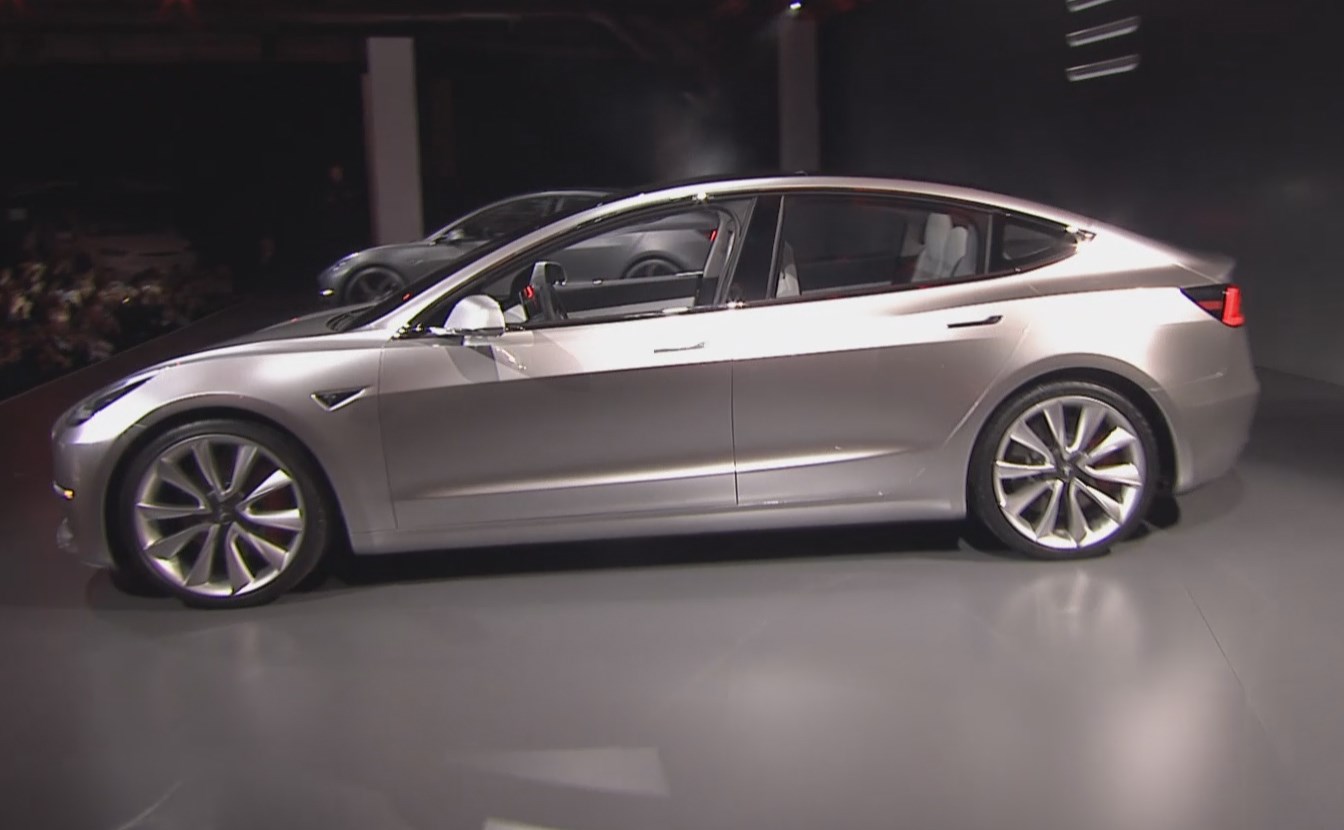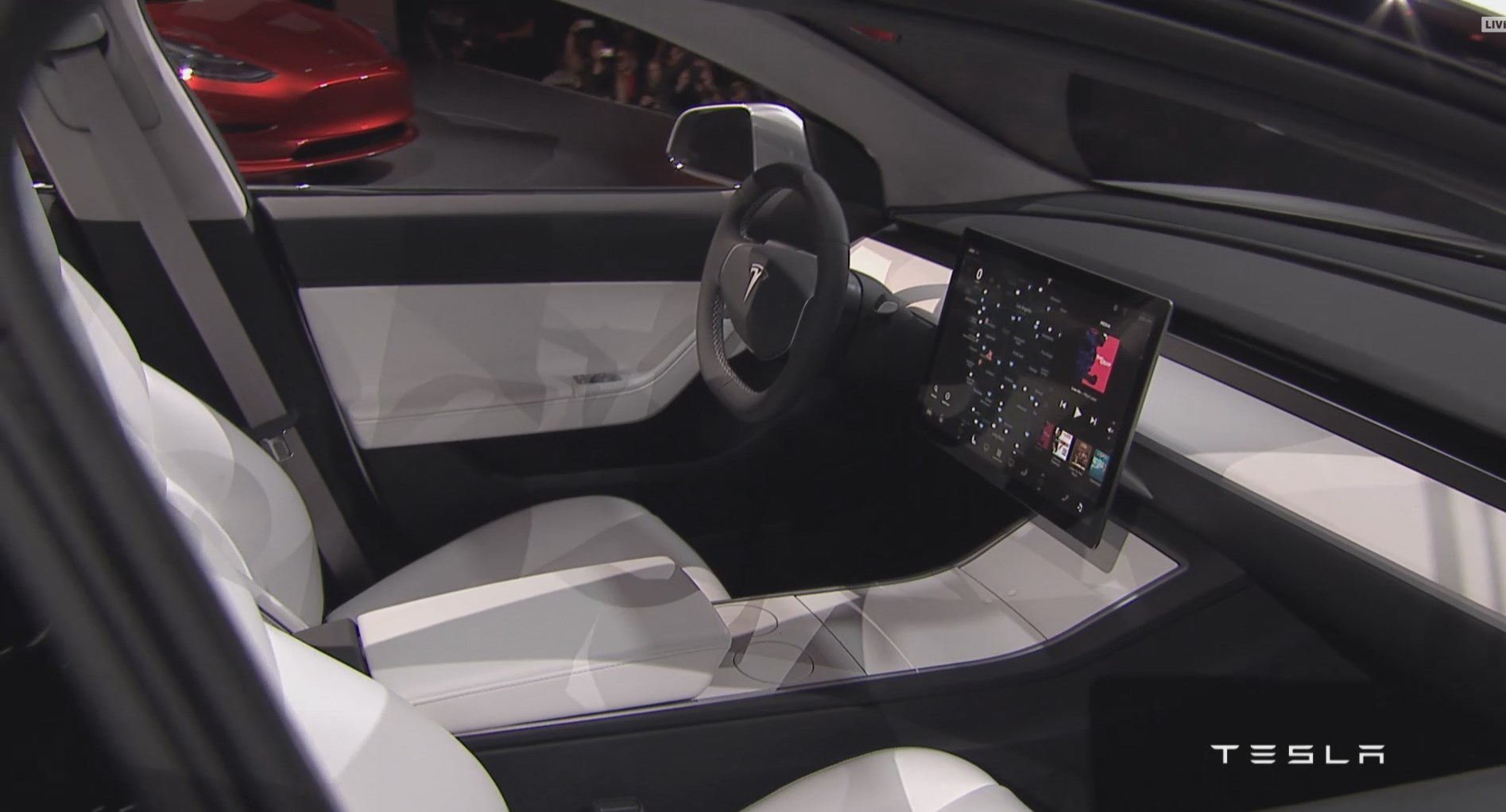Big demand for cheaper Tesla 3
Demand for Tesla Motors' new lower-priced electric car surprised even the company's chief executive as 198,000 people plunked down US$1000 ($1450) deposits to reserve their vehicles.
"Definitely going to need to rethink production planning," a surprised CEO Elon Musk said on Twitter.
Musk unveiled the car Thursday night at a design studio near Los Angeles. It starts at US$35,000 and has a range of 346km per charge, which is far more than most people drive each day.
The orders came from across the globe even though the car isn't scheduled for sale until late in 2017. The right-hand drive version of the car for markets such as New Zealand, will be the last to go into production.
But they could jeopardise a US$7500 electric car tax credit that many buyers are counting on to reduce the price. The tax credits gradually phase out after a company hits 200,000 in US sales.

A Tesla spokeswoman wouldn't say how many of the 198,000 orders came from the US.
On Thursday night, Musk said Tesla had 115,000 orders since the company started taking them earlier in the day in Australia. There were long lines at Tesla stores from Hong Kong to Austin, Texas, reminiscent of crowds at Apple stores for early models of the iPhone. But the number kept rising into Friday.
"Thought it would slow way down today, but Model 3 order count is now at 198k," Musk tweeted during the afternoon, saying the wait time for the car is "growing rapidly."
The Model 3 is less than half the cost of Tesla's previous models, and its range is about double what drivers get from competitors in its price range, such as the Nissan Leaf and BMW i3.
On Twitter, Musk estimated that the average selling price of a Model 3 with options would be around US$42,000. So the sales would bring more than $8.3 billion in revenue to Tesla.

Prototypes looked like a shorter version of Tesla's Model S sedan. The Model 3 has a panoramic glass roof and an elongated hood. Inside, it seats five and has a large touchscreen dashboard. It also has Tesla's suite of semi-autonomous driving features, including automatic lane changing and lane keeping. Musk said it will accelerate from zero to 100km/h in less than 6 seconds.
Tesla has a history of missing deadlines for its vehicles to hit the market, but Musk said he feels "fairly confident" the Model 3 will come out next year.
The lower-priced car is the most serious test yet of 13-year-old Tesla's ability to go from niche player to a full-fledged carmaker. It could be the car that finally makes electrics mainstream - or consumers could continue to be sceptical that electrics will work for everyday use. In the US they still make up less than 1 per cent of annual sales. Either way, the Model 3 is already spurring competitors to speed development of electric cars.
General Motors is set to start selling the Chevrolet Bolt electric car at the end of this year with a similar price tag and a 321km range. Hyundai's Ioniq, which has a 177km electric range and could match Tesla on price, goes on sale late this year. Audi will follow with an electric SUV in 2018.
Underlying demand
The orders show there's real, underlying demand for reasonably priced electric cars with high range, says Edmunds.com senior analyst Jessica Caldwell. Customers put down US$1000 knowing that they'll probably have to wait two years to get their cars, leading Caldwell to believe it's more about the cultural phenomenon of Tesla.
"You're not seeing people wait in long lines to purchase a Chevy Bolt, considering it comes out much sooner and the range is about the same," she said.
Musk said Tesla plans to double its stores worldwide to 441 by the end of 2017, and will double its Superchargers to 7200. Tesla will also add thousands of its destination charging stations at hotels and other locations.
Tesla currently sells two vehicles: The Model S sedan, which starts at US$71,000, and the Model X SUV, which starts around US$80,000. But a lower-priced car was Musk's longtime goal.
Tesla lowered the cost of the car, partly by making cheaper batteries. The company previously assembled its battery packs with cells made in Japan by Panasonic.
But Tesla and Panasonic are building a massive, US$5 billion factory in Nevada to supply batteries for the Model 3. Tesla says the scale of the factory will lower the cost of its battery packs by 30 per cent.
Tesla US price range
• New Model 3 starts at US$35,000.
• Model S starts at US$71,000.
• Model X SUVstarts at US$80,000.
- AP




